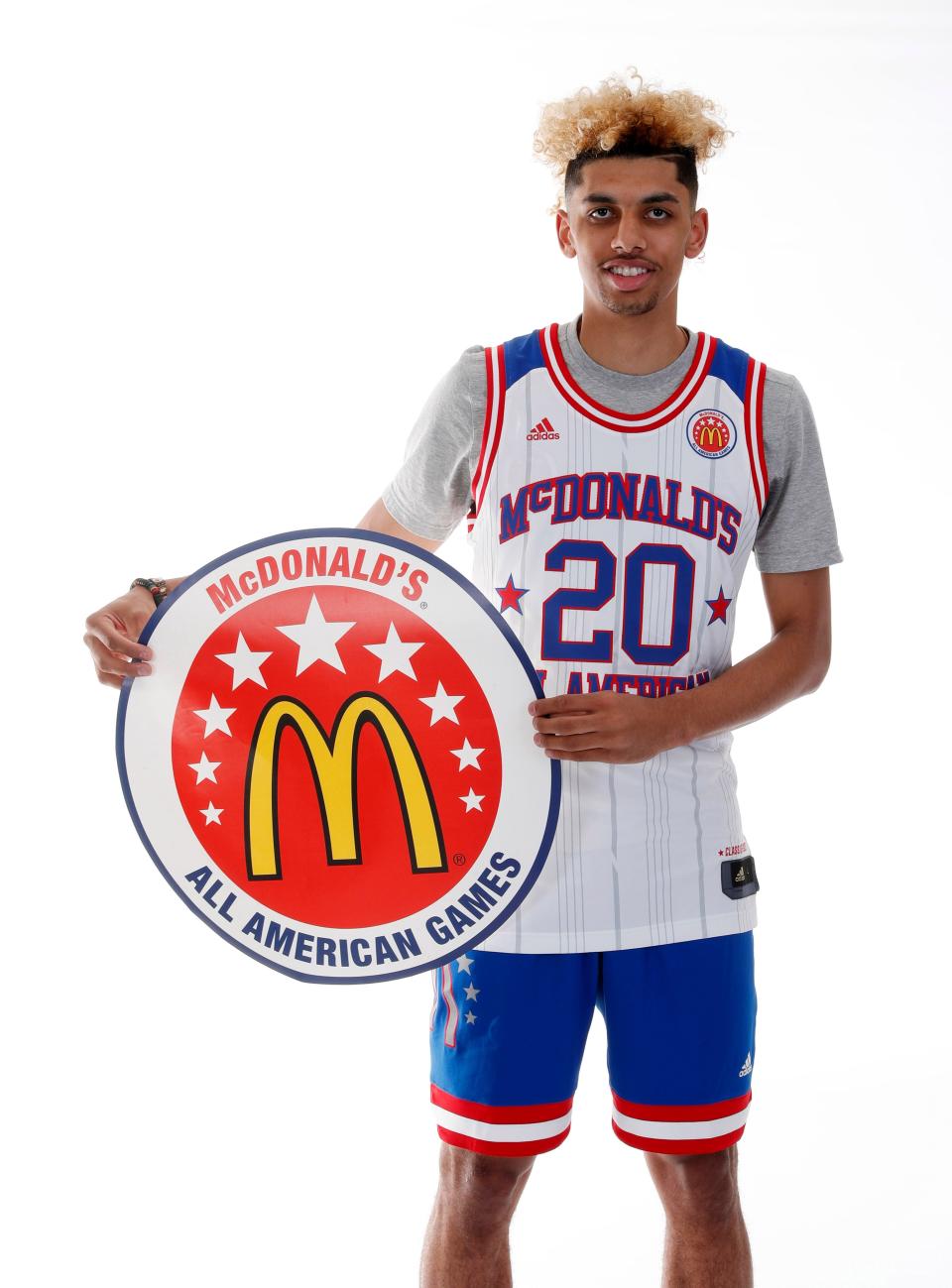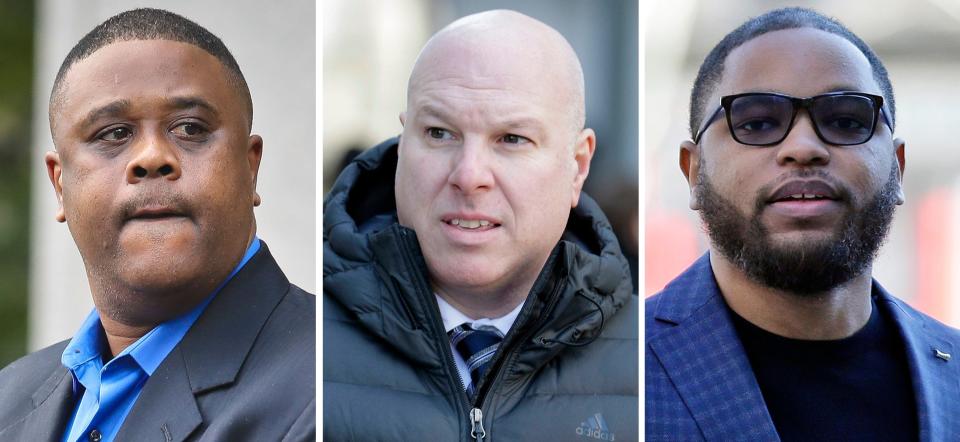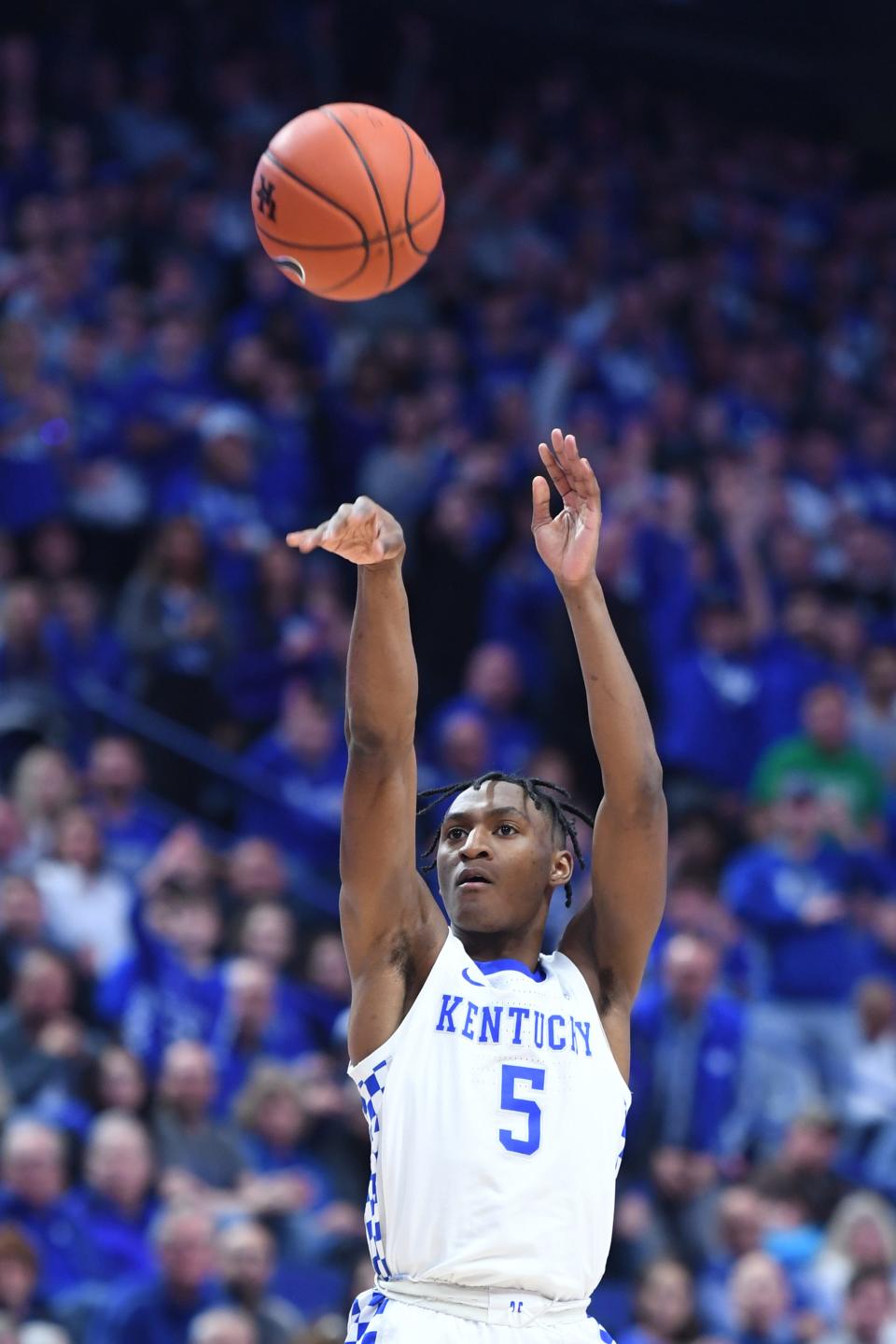Ex-rep says Adidas gave airfare, gifts to ex-Duke star Zion Williamson's family and others
LOUISVILLE, Ky. — A former consultant to Adidas says in a sworn statement that the company provided airfare and other benefits to college players, including former Duke basketball star Zion Williamson.
In a deposition in a lawsuit filed by disqualified University of Louisville recruit Brian Bowen Jr., Dan Cutler said an Adidas representative provided four airline tickets for Williamson’s family before he enrolled at Duke.
In a September 2015 text message to an AAU coach, Cutler also said he had arranged to put up Williamson’s family in a hotel, adding, "We officially aren’t putting any parents up, so let’s make sure we all keep that private, please."
Adidas says in court papers filed April 23 in the lawsuit it is "aware of certain documents suggesting that certain fund transfers to Williamson or his family may have occurred."
The documents were not included in the lawsuit, and lawyers for Adidas and Bowen declined to provide them to The Courier Journal.
But an Adidas attorney, William Taft V, said in a letter filed in the lawsuit that those payments may have included $3,000 a month transferred to Williamson’s family for an unspecified period of time by Christopher Rivers, a top marketing executive at the apparel company, as well as unspecified payments to Lee Anderson, Zion Williamson’s stepfather.
Taft declined to comment on the payments or their purpose. Williamson’s New York attorney, Jeffrey Klein, also declined to comment.
But responding in 2019 to allegations Williamson and his family received improper benefits from Nike and Adidas before he enrolled at Duke, a university spokesman said it had investigated and found no evidence to support any allegation.
"Zion thrived as both a student and an athlete at Duke, and always conducted himself with integrity and purpose," the statement said.
Pay for play allegations
NCAA rules prohibit players from receiving extra benefits, which are defined as any "special arrangement by an institutional employee or a representative of the institution’s athletics interests to provide a student-athlete or the student-athlete’s relative or friend a benefit not expressly authorized by NCAA legislation."
Cutler, who worked for Rivers, was aggressively questioned in a March 23 deposition by an attorney for Bowen Jr., a prized basketball recruit who enrolled at U of L but was barred from playing after the disclosure that an Adidas executive and others had conspired to pay his father $100,000 to steer him to the university.

Bowen alleges in a suit filed in 2018 in federal court in South Carolina that Adidas and its intermediaries engaged in a criminal enterprise using bribes and other inducements to "poach" elite players and "chain" them to the Adidas brand, to increase its market share in the ultra-competitive $25 billion athletic shoe market.
The suit is set for trial this summer.
Bowen, who insists he knew nothing about the payment to his father, alleges the conspiracy ruined his college and potential NBA career.
U of L's board of trustees voted unanimously in October 2017 to fire men's basketball coach Rick Pitino after the allegations that Adidas representatives offered $100,000 in bribes to Bowen's father to steer him to Louisville.
Pitino, who now coaches at Iona College in New Rochelle, New York, has said he was not aware of any pay-for-play scheme, though he told WFAN Radio last year he deserved to be fired.
"Was I innocent of any wrongdoing? Yes, I was, but I was the leader and I deserved to be fired," he said.
Adidas began sponsoring Louisville in 1998 and in August 2017 the university confirmed a 10-year contract extension worth $160 million, at the time the fourth-richest apparel agreement in college sports.
Responding to Bowen's suit, the company filed a cross-claim against Bowen Sr. alleging he solicited and accepted bribes in return for promising that his son would play basketball for specific schools — and money for the bribes was misappropriated from the company.
FBI investigation results in four convictions
Cutler is a central figure in charges against the University of Kansas, in which the NCAA alleges he had impermissible conduct with a recruit by promising he and Adidas would ensure the recruit's "parents could attend his games by providing financial assistance for their travel expenses."
Three weeks later, Coach Bill Self learned of the contact and called the recruit and his mother about playing for Kansas, according to the NCAA.
Kansas, Louisville and five other schools have been accused of misconduct by the NCAA stemming from an FBI investigation into men's college basketball that resulted in the 2018 trial and convictions of James Gatto, an Adidas executive; Merl Code, an Adidas consultant; and Christian Dawkins, an aspiring sports agent.

A fourth defendant, Thomas "T.J." Gassnola, pleaded guilty to being a fixer in the secret scheme to funnel cash to players and their families. Testifying for the government, he said the scheme was known within the company as its “black ops” program.
In a 341-page deposition, Cutler claimed he never heard the term, even though it was used in messages the defendants sent him.
In a text on Feb. 18, 2015, for example, his supervisor told Cutler and others “please don't include any confidential Black Ops information” in reimbursement requests “but make sure there is enough detail that validates the money we spent in addition to demonstrating how we are building relationships that will help us in the grassroots process.”
Cutler testified he was paid $85,000 a year to "build relationships" with high school and even younger players "so if there is an equal offer between Adidas, Nike and Under Armor … we would hope that relationship would be able to carry us in that particular signing."
Adidas courted young players by 'product seeding'
Cutler described an operation awash in mysterious cash.
He said he was once instructed by the company to bill Adidas International in Amsterdam for $30,000, without being told what the money was for, then told five days later to do the same thing again.
He testified he would send shoes and apparel to prospects as young as 11 to 14 years old in what the company called “product seeding.” He said the goal was to make inroads with elite high school talent that might someday wear Adidas brands in the NBA.
To bring Maryland high school prospect Immanuel Quickley into the Adidas fold, for example, Cutler said he sent Adidas products to Quickly and his family.
But he signed with the University of Kentucky, a Nike school and now wears Nike shoes as a budding star for the New York Knicks.

Williamson signed with Duke, a Nike school, and signed a shoe deal with Nike after he was chosen first in the 2019 NBA draft by the New Orleans Pelicans.
Cutler also acknowledged he paid for airfare for Duke star Frank Jackson to fly back to his home in Utah for fall break and for Jackson’s girlfriend to fly to visit him at the campus in Durham, North Carolina.
In a text message, Jackson, who had been highly recruited before he signed with the Blue Devils in 2015, asked, “Can Adidas pay for my flight? LOL.”
“We can’t, but it can magically appear,” Cutler said in a text back.
Cutler said he paid for the flights himself because he considered Jackson “a good friend.” Jackson also left Duke after one year and now plays for the Detroit Pistons.
He did not immediately respond to a message left with the club.
Cutler also testified he bought a high school graduation present — a Key West cruise — for 6-foot-9 power forward Dewan Huell, who in 2016 chose Miami, an Adidas school, over five other major college offers.
Cutler said he made the gift because Huell’s mother had been evicted and was in dire financial straits.
Huell, who later changed his last name to Hernandez in her honor, was the 59th pick in the 2019 NBA draft and signed with Toronto but most recently played for the Rio Grande Valley Vipers of the NBA G League.
Andrew Wolfson: 502-582-7189; awolfson@courier-journal.com; Twitter: @adwolfson.
This article originally appeared on Louisville Courier Journal: Adidas gave gifts to Duke star Zion Williamson's family, says ex-rep

